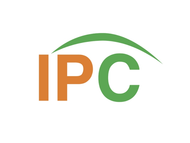Four Benefits of IPC Standards in PCB Manufacturing
Posted by Admin on Nov 2nd 2021
IPC is an association that produces PCB-related standards. Previously an acronym for Institute for Printed Circuits, IPC is now called the Association Connecting Electronics Industries. IPC is a global trade association that defines standards to manufacture PCB and other types of electronics components. At present, IPC comprises of more than 4800 members. These members consist of companies that specialize in various domains of PCB manufacturing. It includes designers, material suppliers, board manufacturers, assembly services, and OEMs.
Six printed circuit board manufacturers established IPC in the year 1957. IPC documents standards that help to make, specify, use, and design PCBs and assemblies, including
Aerospace and military
Advanced microelectronics
Computer
Automotive
Medical equipment and devices
Industrial equipment
Telecommunications industry
You can opt for IPC online training to learn about the various standards to build safe, reliable, high-performing circuit boards.
IPC specifies three classes of electronic products.
Class 1 class covers general electronic products or everyday use products. It has a limited life and possesses simple functions.
Class 2 class covers dedicated service electronic products. These products have a long service life and are highly reliable. The PCBs are deployed in regular service environments, where uninterrupted service is desirable but mandatory.
Class 3 covers high-performance electronic products. These products should perform on-demand or guarantee continued performance. These products should not face any downtimes and are designed for use in harsh environments.
There are various benefits of adopting IPC standards in manufacturing, fabricating, and designing PCB’s.
Maintain End Product Quality and Reliability
By closely following the documented IPC standards, the manufacturers can find better orients to release high-quality products. It helps to ensure that the end product will be reliable and practical, with minimal chances of failure. It entails standardized methods, tips, and processes to determine that the final product will deliver quality performance, be less susceptible to errors, and last longer. To compete in the manufacturing market, the stakeholders must keep track of the quality and reliability of the product, which can be achieved with IPC standards.
Maintain Consistency
Consistency is an important parameter that helps ensure success in a project. Manufacturers find maintaining consistency to be a daunting task. But with IPC training and certification, they become aware of the various standard practices to build consistency across the process and contribute to better customer satisfaction.
Better Communication
The IPC standards define terminologies, processes, and procedures to reduce the risk of miscommunication. Hence, it keeps the vendors, customers, suppliers, and regulators on the same page and communicates efficiently. Moreover, it helps ensure better collaboration and coordination across team members to maintain better consistency. It helps enhance product quality and improve your reputation to improve your customer outreach and repute in the marketplace.
Cost Reduction
Strictly adhering to quality IPC standards for manufacturing circuit boards helps minimize manufacturing errors and material loss. Hence, it also does away with the need for testing and inspection. Miscommunication can lead to costly delays and reworks, which can cause you excess the deadline and budget.
To Conclude:
These are a few benefits of following IPC standards to manufacture PCBs. It helps assure consistent PCB quality and contributes to client satisfaction.

